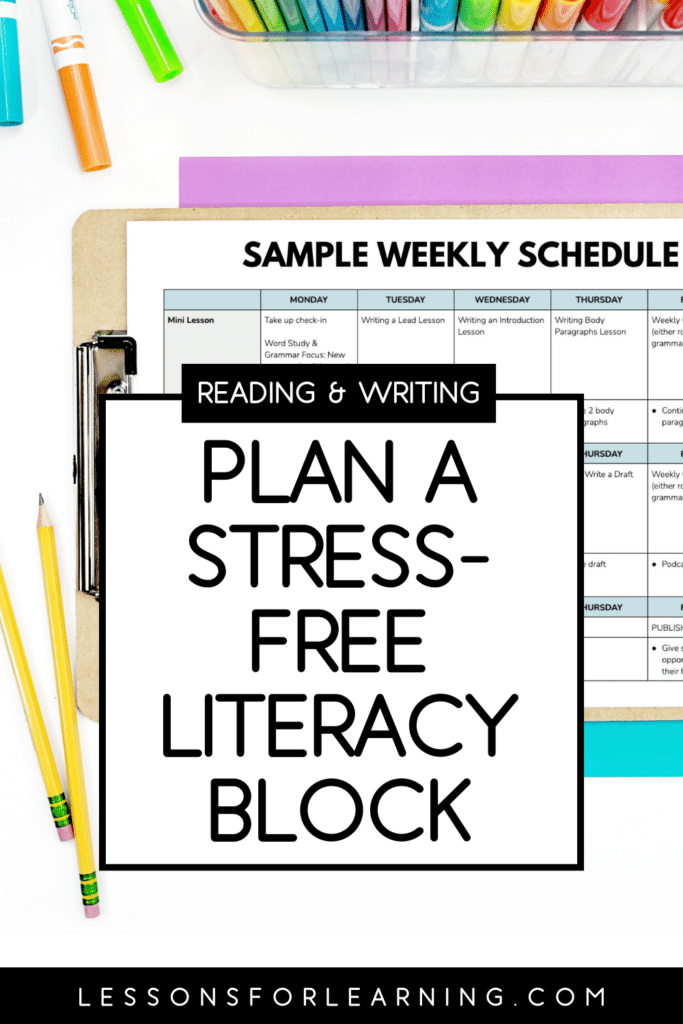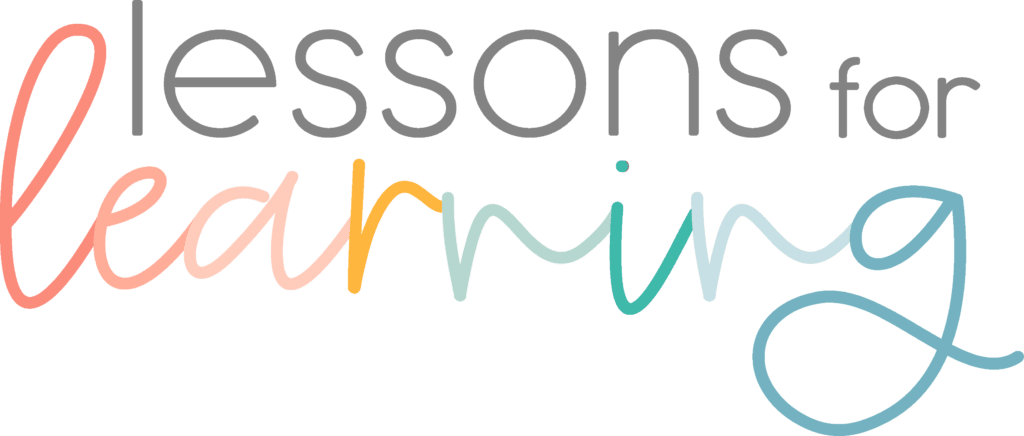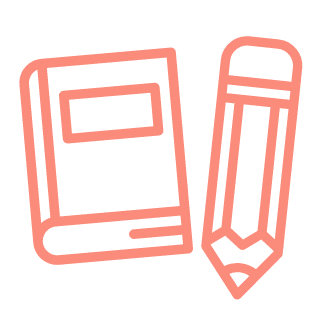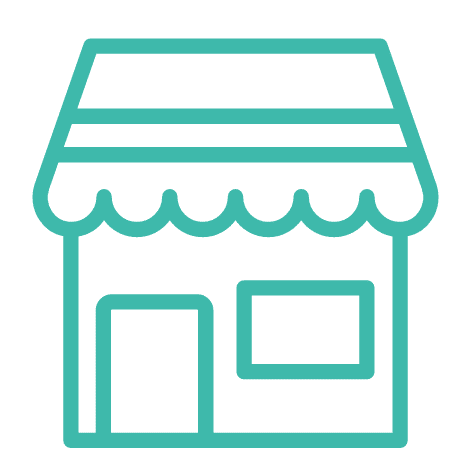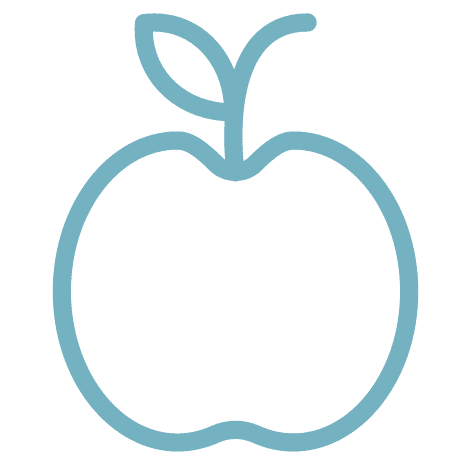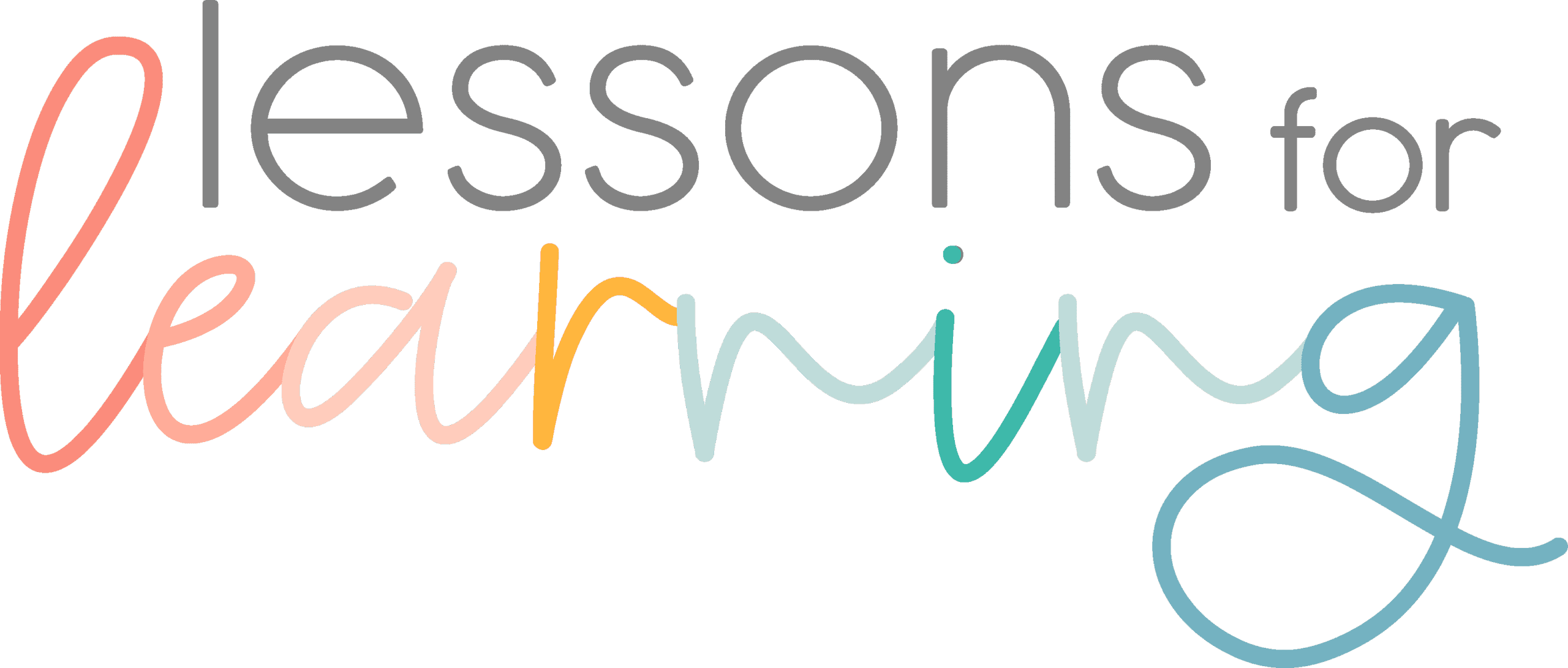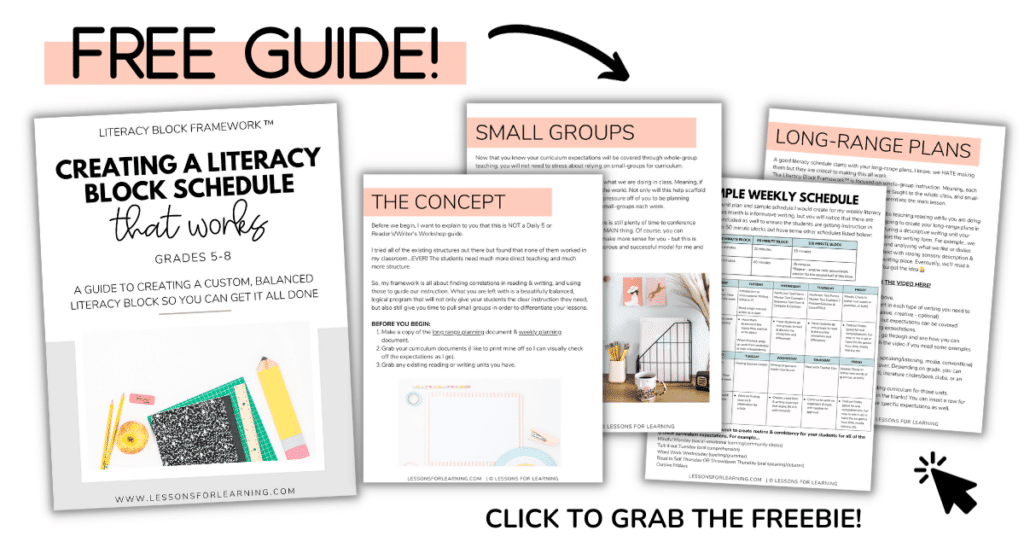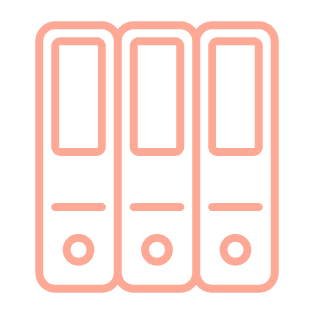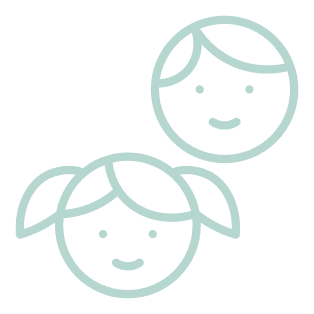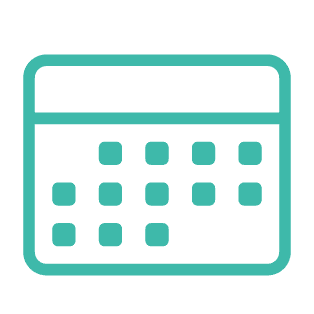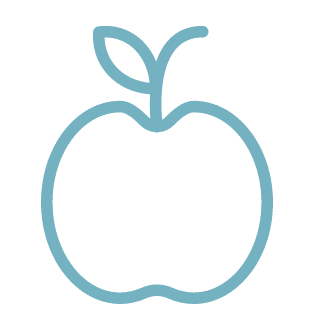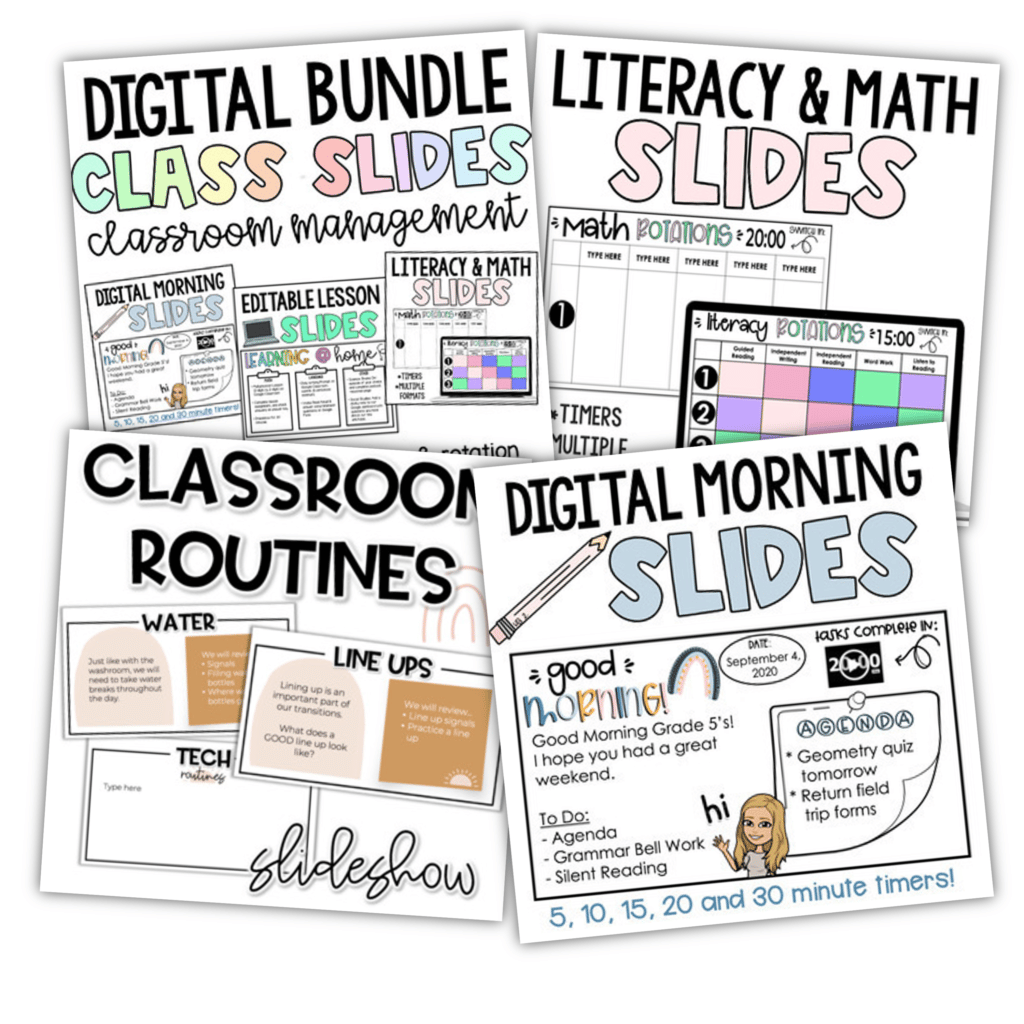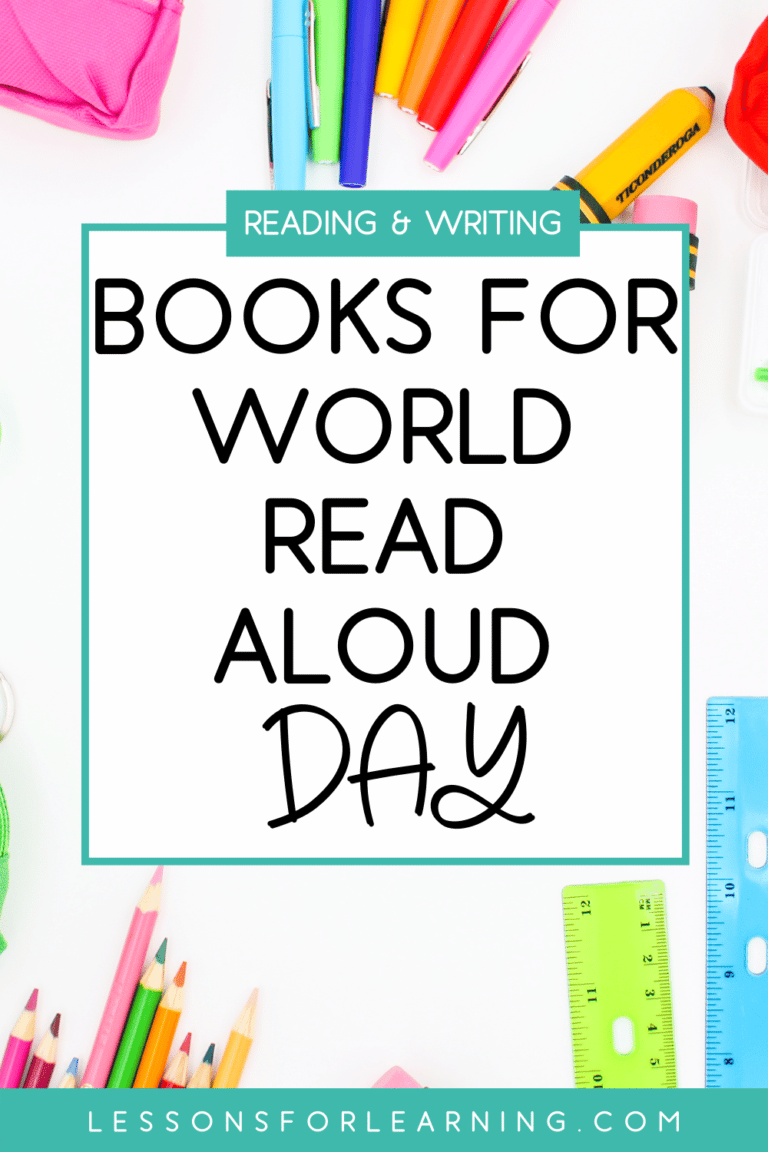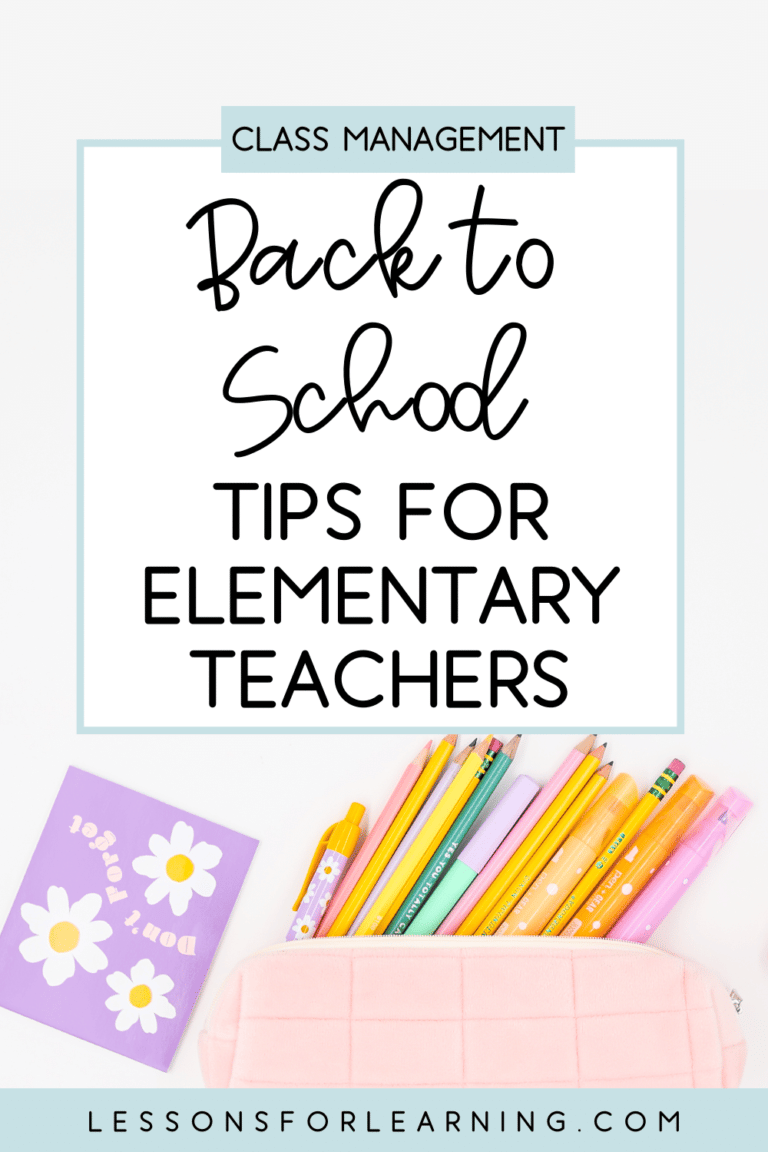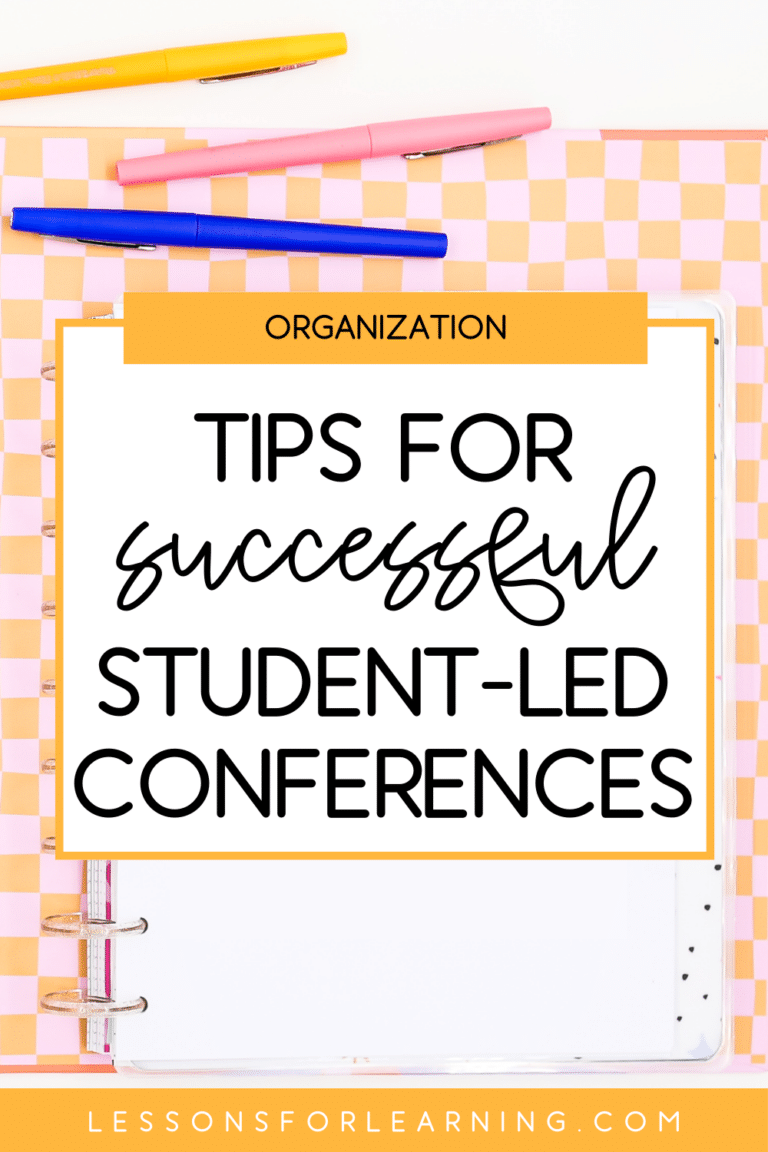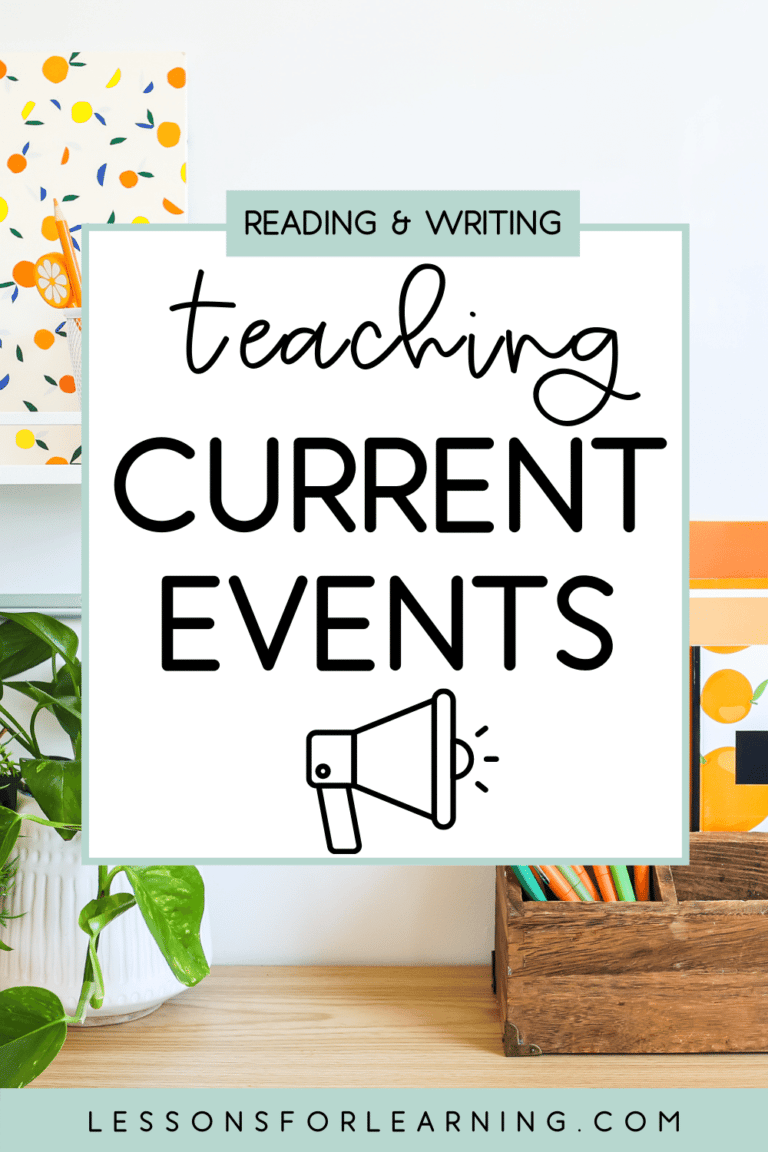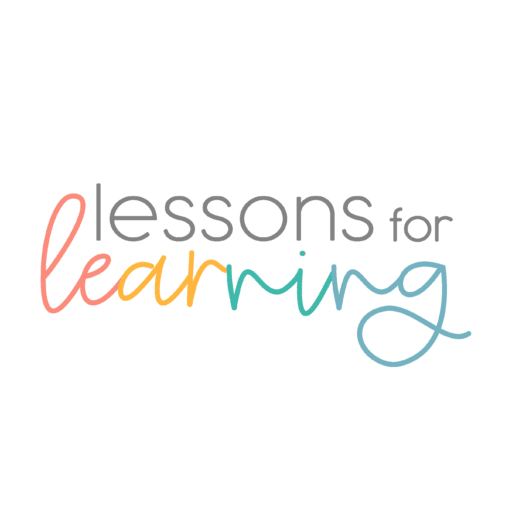I need to be honest with you. I hate planning a literacy block. Even though I have all sorts of resources and ideas for engaging language units, I absolutely DREAD figuring out how to break up my time every year.
But last year I *finally* stopped overthinking it and really asked myself what works for my students. And honestly, my new plan WORKED! So today, we’re chatting about tips for a successful literacy block and I’ll share all my secrets with you.

Long-Range Planning for Long-Term Success!
Creating long-range plans can be daunting, it’s true! However, their value is unmatched, particularly when you get into the school year.
Much like meal prep on Sundays that set you up for breakfast and lunch throughout the week, long-range plans set you up for success all year long. And I for one am okay doing prep if it means having a better work-life balance from September to June or even for a term.
Being able to see the full year (or at least a term ahead) will allow you to figure out what you need to allot time for in your weekly schedule and day-to-day lessons.
If you want examples of long-range plans and how to do these effectively (when the curriculum overwhelms you) click here to download my free Literacy Block Framework™! This freebie includes a template and video walkthrough on how to make long-range plans that you will actually stick to.
Whole-Group Lessons with Independent Work Periods
One effective approach to managing your literacy block is conducting whole-group lessons followed by independent work periods.
The second half of the period provides the chance to meet with students. I have found this to be an ideal set-up because it provides the flexibility needed to address individual student needs with targeted differentiation.
During students’ independent work time, you can pull small groups to reteach concepts introduced during the whole-group lesson. You can also check in to provide one-to-one support for individual students too.
The beauty of this approach is that it eliminates the need for creating multiple different small group lessons and strict schedules. It allows you to tailor your support to what each group or student specifically requires.
Engage with Rich Content for Your Literacy Block
You can plan the PERFECT literacy block on paper, but if your students aren’t excited about the content, I can guarantee you it won’t go well.
This is where there is a need for writing units that feel relevant and provide student choice.
Whether it’s informative, narrative, or opinion writing you want to make sure that your students find options that hook them from the start.
One of my students’ favourite activities in our narrative study unit is when they design their own restaurants. After learning about descriptive and figurative language students create a menu with all of the dishes they’d offer at their restaurant. Plus, they dive in with sensory language to write a paragraph to describe all of the details about their restaurant.
Students love it because it’s fresh and fun and I love it because it’s highly engaging and meets the expectations I’ve set out for the unit. Read more about this lesson here.
This activity is just one of many in the Ultimate Writing Bundle that I use in my classroom. The bundle is an option for those who want their writing units done for them since it includes everything you need!
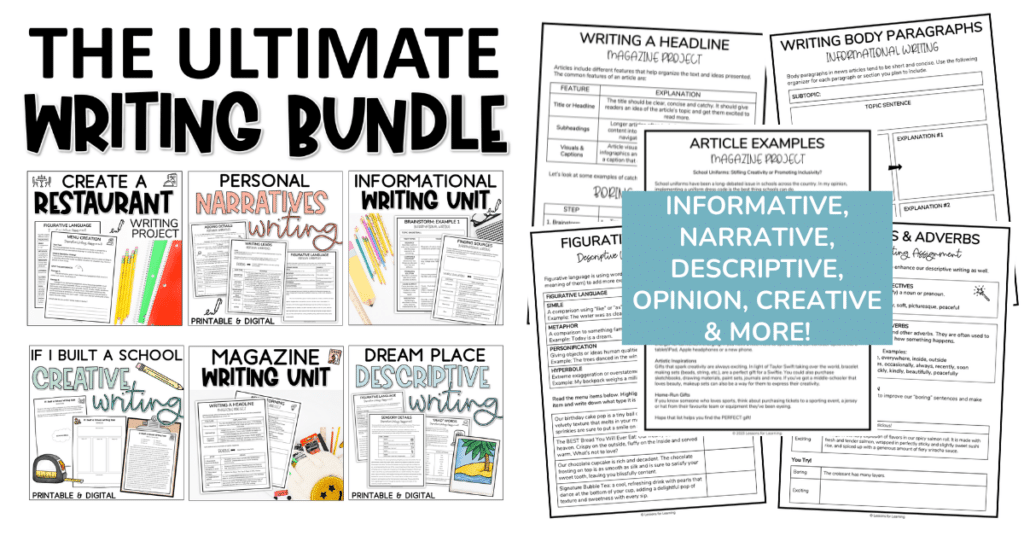
For example, one unit in the bundle combines informational writing and media by having your students create a magazine that focuses on an area of their interest. This is great for cross-curricular learning, which can deepen their understanding of writing as well as any other subject you incorporate.
This unit alone will have your students complete market research, examine high-quality headlines, research topics, read mentor texts from different magazines, write articles, and work through the editing process. And, ultimately, they can create a print or digital magazine so they become familiar with publishing work too!
This ready-for-you set of units has everything from teacher instructions to mentor texts to scaffolded lessons that guide students (and you) through every step of the process for a variety of different writing units and activities. It’s designed to help reduce the overwhelm of planning all of the whole-group lessons yourself.
Meet Your Students Where They Are
When you first meet your students you may already have a plan in place but that literacy block schedule/framework will likely need to change once you know the kids in your room. In fact, I’ve had to change each year (and even throughout the year) and that’s OKAY!
The long-range plan is a map for the term or year but if you have to veer in another direction for those in your room then that’s what you do. Don’t let the long-range plans constrain you, they are there as a support for you and your students.
I mentioned meeting students where they are and this framework is one of the ways to do that. Aside from completing individual or small-group pullout sessions in the independent lesson section of your literacy block, you can use assessments to guide you too.
Through assessment, you should be able to see where your students are in terms of knowledge and understanding and what parts of the curriculum they may need more or less support with in each particular lesson and unit. This means you may have to change your long-range plans throughout the year depending on what you see.
Let your students be the guides throughout the year and don’t be afraid to change your weekly schedule or routines if they need more time/support in certain areas.
For example, if spelling is a big struggle in your class, you may have word work for the first 10 minutes of every day rather than once a week on “word work Wednesday.”
At the end of the day, like all things we do as teachers, we make our plans and then tweak those plans as our students (and schedules) need us to.
I’m hopeful these lessons I’ve learned from planning will help you with yours. I’m always happy when I can share a journey from struggle to success in the hopes that fellow teachers can benefit from it!
To go along with my free Literacy Block Framework™ check out this post with classroom routines and systems that can help simplify your year. Because it’s never too early or too late to try something new that might be a big help to you, your students, and that ever-important work-life balance!
